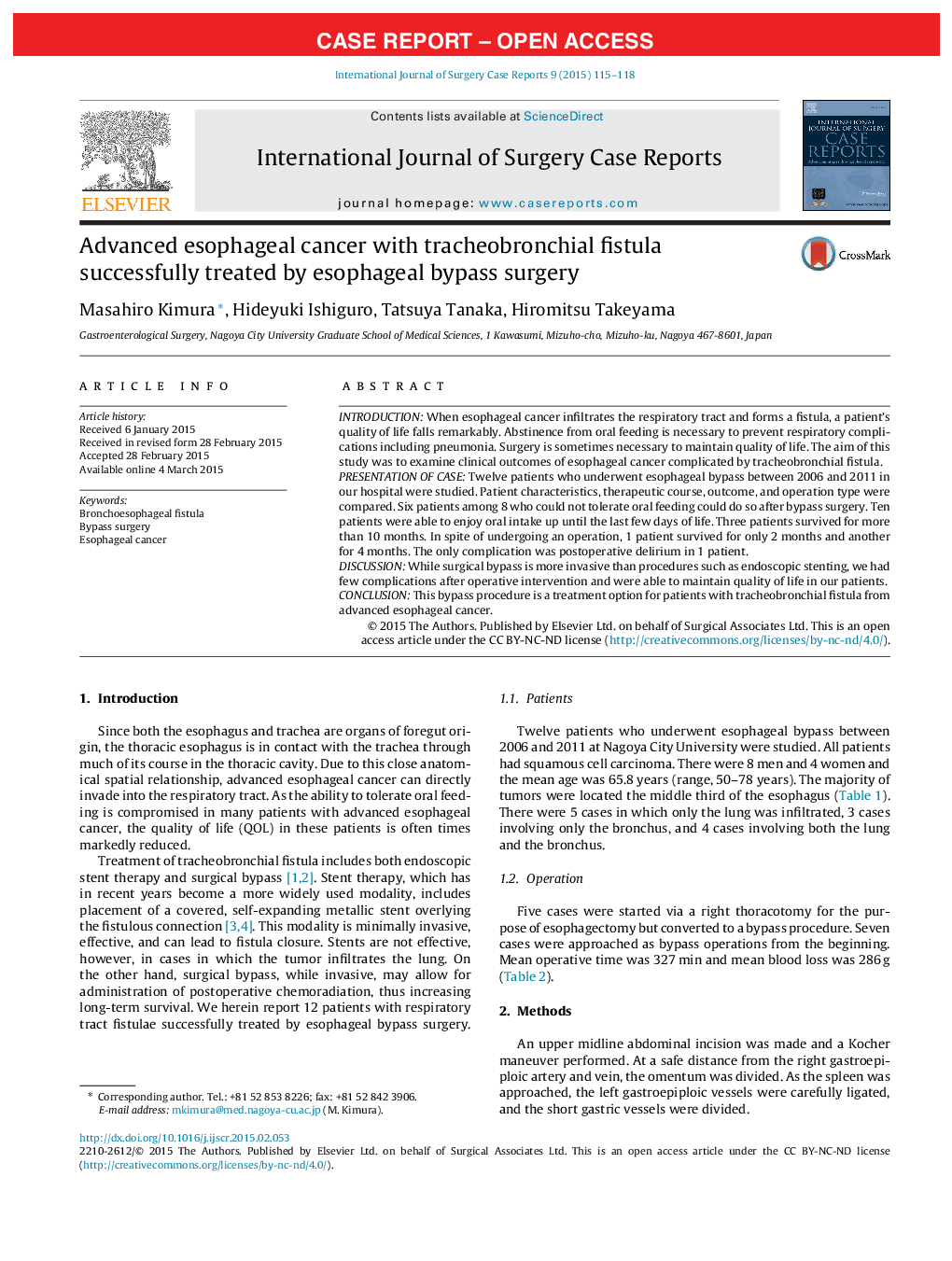| Article ID | Journal | Published Year | Pages | File Type |
|---|---|---|---|---|
| 4289099 | International Journal of Surgery Case Reports | 2015 | 4 Pages |
•Twelve patients who underwent esophageal bypass between 2006 and 2011 in our hospital were studied.•Ten patients were able to enjoy oral intake up until the last few days of life. Three patients survived for more than 10 months.•The only complication was postoperative delirium in 1 patient.
IntroductionWhen esophageal cancer infiltrates the respiratory tract and forms a fistula, a patient’s quality of life falls remarkably. Abstinence from oral feeding is necessary to prevent respiratory complications including pneumonia. Surgery is sometimes necessary to maintain quality of life. The aim of this study was to examine clinical outcomes of esophageal cancer complicated by tracheobronchial fistula.Presentation of caseTwelve patients who underwent esophageal bypass between 2006 and 2011 in our hospital were studied. Patient characteristics, therapeutic course, outcome, and operation type were compared. Six patients among 8 who could not tolerate oral feeding could do so after bypass surgery. Ten patients were able to enjoy oral intake up until the last few days of life. Three patients survived for more than 10 months. In spite of undergoing an operation, 1 patient survived for only 2 months and another for 4 months. The only complication was postoperative delirium in 1 patient.DiscussionWhile surgical bypass is more invasive than procedures such as endoscopic stenting, we had few complications after operative intervention and were able to maintain quality of life in our patients.ConclusionThis bypass procedure is a treatment option for patients with tracheobronchial fistula from advanced esophageal cancer.
